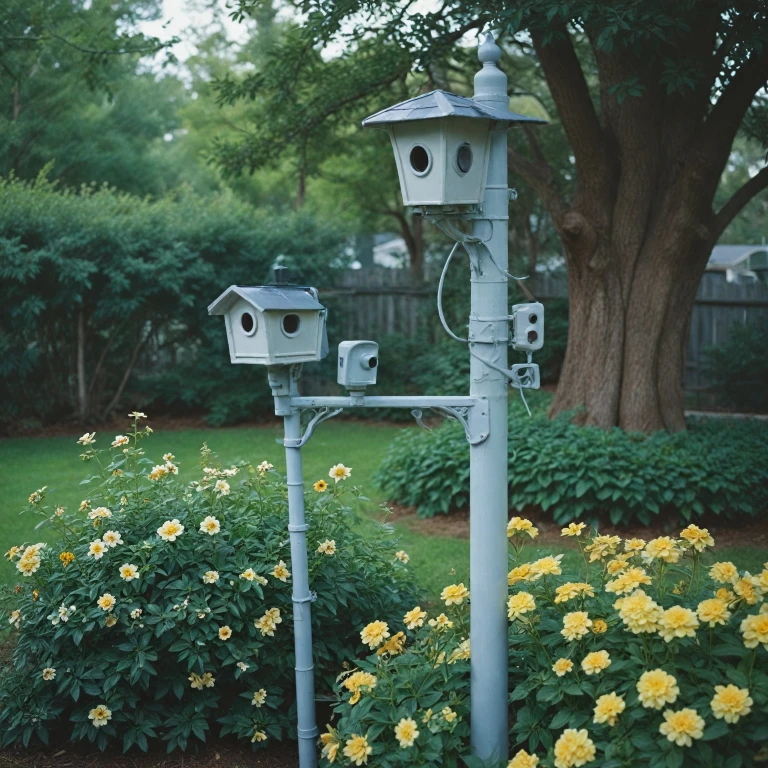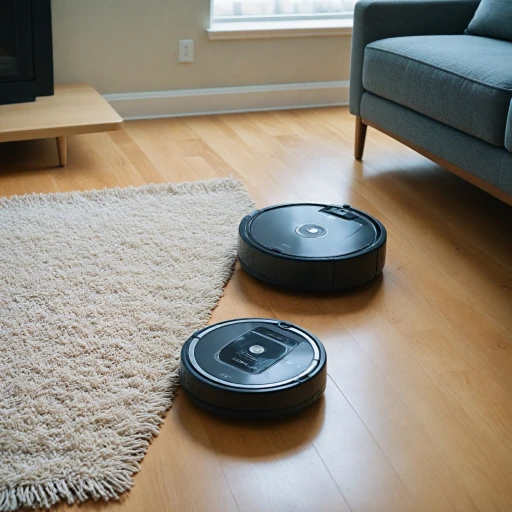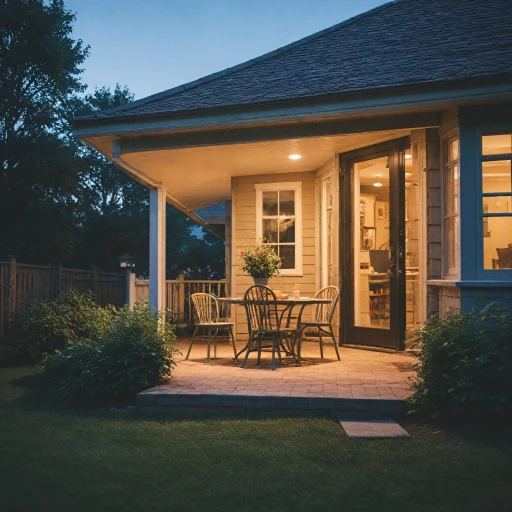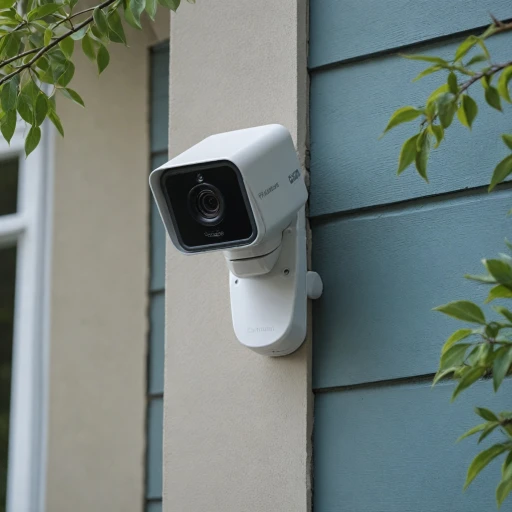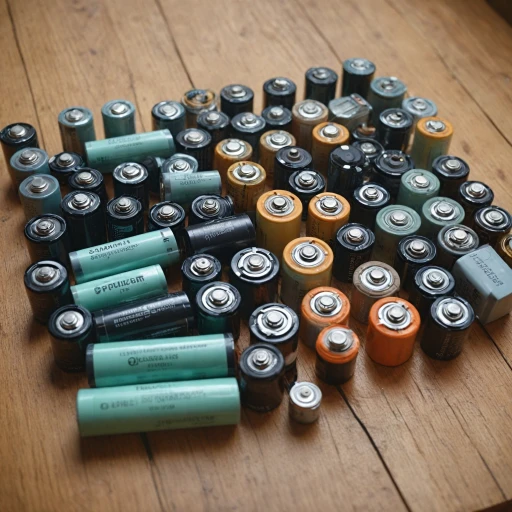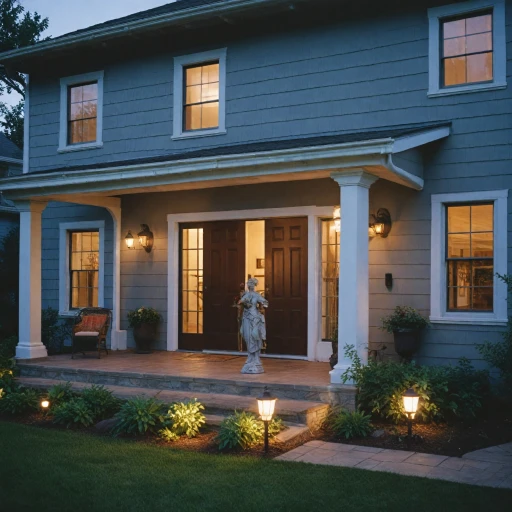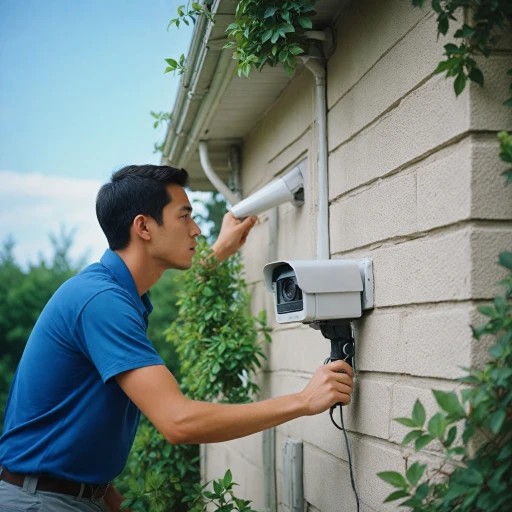
Understanding Non-WiFi Security Cameras
Exploring the Basics of Non-WiFi Cameras
In today's tech-driven world, many homeowners seek security solutions that don't rely on WiFi to safeguard their properties. Understanding how security cameras without WiFi function can open up a whole new range of options for effective security. Non-WiFi cameras, as the name suggests, operate independently of a wireless internet connection. These cameras don't require an internet source to monitor your home, offering a unique advantage for remote locations or places with unreliable connections. While modern WiFi cameras have certainly become popular, exploring cameras that work without internet offers a different set of benefits. These types of cameras are particularly beneficial for those who value privacy and wish to avoid the risk of security breaches over the internet. By not connecting to a WiFi network, the system keeps data local, stored directly on the device or a separate local storage unit. Furthermore, non-WiFi security systems often feature video footage stored on SD cards or local servers, meaning your data is accessible without the need for cloud storage or subscriptions. Many of these systems come with motion detection, night vision, and wireless capabilities, allowing for versatility in various environments. Brands like Reolink, Lorex, and Eufy offer robust options in this category. For those interested in diving deeper into security solutions without wireless complications, such as doorbell cameras that operate independently of WiFi, check out this comprehensive guide on doorbell camera options without WiFi.Benefits of Using Security Cameras Without WiFi
Advantages of Opting for Security Cameras That Operate Without WiFi
Choosing security cameras that don’t rely on WiFi can offer a multitude of benefits that cater to various security needs. It’s important to evaluate the advantages and weigh them against your specific requirements for a comprehensive understanding.- No Dependence on Internet Connection: With non-WiFi security systems, there’s no need for a steady internet connection. These cameras work independently of WiFi, thus providing uninterrupted security even during an internet outage.
- Improved Security and Privacy: When utilizing cameras without internet connectivity, you mitigate the risk of cyber-attacks and unauthorized access to your footage. This makes them ideal, particularly if privacy is a primary concern.
- Consistent and Reliable Footage Storage: Most non-WiFi cameras use local storage solutions, such as SD cards, for recording video footage. This method ensures that the data is safely stored on-site, allowing for easier retrieval without depending on cloud services.
- Ease of Use and Maintenance: Operating security cameras that don’t require internet can often result in more straightforward installation and maintenance processes, which can be beneficial for those who prioritize simplicity in their security systems.
- Cost-Effective Option: Without the need for WiFi, these cameras can also prove more budget-friendly. Long-term savings may be realized by avoiding subscription fees associated with cloud storage solutions.
- Ideal for Remote Locations: For areas where internet service is limited or unavailable, non-WiFi security cameras offer a viable solution. They are still capable of providing dependable surveillance without infrastructure constraints.
Types of Non-WiFi Security Cameras
Varieties of Security Cameras That Operate Independently from WiFi
When exploring the world of security cameras that function without relying on WiFi, it’s important to understand the different options available. These cameras offer unique advantages for those looking to maximize security without the use of an internet connection. They deliver peace of mind, especially in locations where WiFi might be unreliable or unavailable.
Analog Cameras: These traditional cameras capture footage and transmit video signals through coaxial cables. They’re often part of a CCTV system, providing reliable surveillance without the need for an internet connection. Analog cameras are a great choice for businesses or homeowners looking for continuous monitoring.
Closed-Circuit Television (CCTV) Systems: CCTV systems use multiple cameras to record video to a local digital video recorder (DVR). This method offers secure data storage without the need for WiFi, making it a trusted option in the security field.
Sim Card-Enabled Cameras: For those needing flexibility, cameras equipped with a sim card can transmit video using cellular networks. Companies like Reolink and Lorex offer models that operate entirely through a mobile network, bypassing the need for WiFi and providing an excellent option for remote areas.
Local Storage Cameras: Cameras such as those from eufy and other brands provide local storage options like SD cards. These wireless security cameras store data directly on the device, eliminating the need for cloud storage or an internet connection. They are convenient for users prioritizing data privacy and independence.
Battery-Powered Cameras: Ideal for areas without available power, these cameras don’t require a constant power source. Eufy and other manufacturers provide models with excellent motion detection and night vision features, ensuring comprehensive security coverage even in the absence of WiFi.
Each type of camera offers its set of features and benefits. Exploring security infrastructure enhancements can help in choosing the right system for your specific needs. Consider factors such as location, mobility, and storage preferences when selecting the best fit for your home or business.
Installation and Maintenance Tips
Installation Tips for Optimal Performance
Installing non-WiFi security cameras requires a bit more strategy than their WiFi-dependent counterparts, especially when it comes to positioning and wiring.- Positioning Matters: First, consider the specific areas you want to monitor. Outdoor security cameras should cover all potential entry points, driveways, and areas with limited visibility. Ensure your camera's field of view is not obstructed by trees or walls.
- Power Source Considerations: Whether you choose battery-powered cameras like Reolink or Eufy, ensure they are easily accessible for changing batteries. If opting for wire-based non-WiFi models, plan your installation close to power outlets.
- Local Storage Setup: Since these cameras don't rely on cloud storage, setting up your local storage correctly is crucial. Ensure your data storage device, such as an SD card or DVR system, has enough capacity to save all necessary footage. Regularly check your storage to avoid data loss and manage video storage efficiently.
Maintenance for Longevity
Keeping your non-WiFi security cameras in top shape will ensure they provide the best security system support without interruptions.- Regular Cleaning: Dust, debris, and weather elements can affect the lens and camera performance. Clean the lens and housing regularly, particularly for outdoor cameras prone to harsh weather conditions.
- Test Motion Detection: Cameras with motion detection features may require recalibration to avoid false alarms and ensure accurate detection. Test these features periodically, especially after firmware updates or environmental changes.
- Inspect Connections and Batteries: If your setup includes wireless cameras without internet, check for loose connections and ensure the battery is charged or replaced in a timely manner to maintain uninterrupted footage.
Comparing Costs and Features
Evaluating Costs and Distinctive Features
When considering security cameras without WiFi, examining both costs and features is crucial to make a knowledgeable decision. As these types of cameras do not rely on internet connections, their pricing and functionalities can differ significantly from traditional WiFi-enabled systems.- Cost Analysis:
- Initial Investment: Non-WiFi security cameras can range from budget-friendly options to high-end models. While brands like Reolink and Eufy offer reasonably priced choices, premium options from Lorex might come with heftier price tags.
- Storage Options: One cost to weigh is storage. Cameras relying on local storage often require memory cards, which varies in capacity and price, adding to the overall investment.
- Power Source: Consider whether a cam uses batteries or a direct power source. Battery-powered cameras may incur ongoing costs for replacements, though rechargeable options could alleviate this.
- Feature Comparison:
- Video Quality: The clarity of video footage can range greatly, with options boasting full HD or even 4K resolution. Night vision capability is another essential feature to ensure your security cameras can function effectively 24/7.
- Motion Detection: This feature is integral for capturing actionable video footage without internet, activating the camera only when motion is detected. Evaluating the sensitivity and accuracy of this function is key.
- Wireless vs. Wired: For users preferring minimal installation hassle, wireless cameras provide flexibility, though it's important that they work efficiently without internet. Wired options, while potentially offering stable operation, may require more intensive installation efforts.
Choosing the Right Camera for Your Needs
Key Factors in Selecting Your Ideal Security Camera
When it comes to choosing the best security camera without relying on WiFi, it's important to consider several key aspects to ensure you're making a well-informed decision that suits your unique security needs. Here's what to focus on:- Security Requirements: Before deciding on a camera, evaluate what you need in a security system—whether it's for indoor or outdoor use, constant monitoring or occasional check-ins. Security cameras without WiFi typically rely on local storage, which can be a significant advantage if you prioritize privacy and control over video footage.
- Connectivity Options: Consider whether a camera without an internet connection will work for your specific setup. Look into security systems that utilize SIM cards or more traditional wired connections for data transmission to avoid dependence on WiFi.
- Footage Storage: Evaluate the pros and cons of local storage versus potential cloud solutions. Cameras like those from Reolink, Lorex, or Eufy often offer comprehensive local storage options, which can help secure footage against internet outages or hacking attempts.
- Power Source: Think about the power requirements. Battery-operated security cameras provide the benefit of being wireless and easy to install, but they do require regular battery maintenance. Check if the camera investment includes energy-efficient features to ensure reliability.
- Features and Performance: Non-WiFi security cameras can come packed with features such as motion detection and night vision, often incorporated into both indoor and outdoor security systems. Review cameras for features that meet your safety goals, like capturing clear footage in low-light conditions or detecting movement accurately to minimize false alerts.
- Cost Consideration: Balancing cost with features is crucial. While wireless security models without WiFi can range widely in price, examine what's included in terms of capabilities, installation, and warranty to make sure you're getting a solid return on investment.

